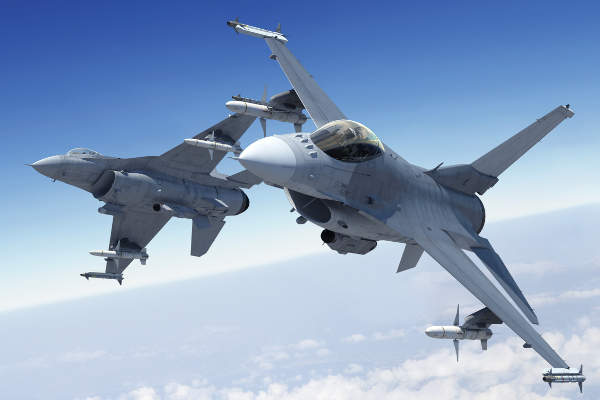Thank God Now The Obsolete “ Super F 16 “ Can Not Be Forced On IAF

By
Colonel Awadhesh Kumar, Veteran
Thank God, the chances of a new kind of obsolete F-16 being somehow thrust upon the IAF has been nixed. It dramatically vanished. The Indian air force recently made it clear that it would cancel a tender for foreign-made warplanes.
To confuse the issue and somehow force India to accept its outdated aircraft which technically had been rejected by IAF, the motivated American Lockheed Martin LMT developed a “hyped highly-advanced “ F-16 variant calling it the F-21.
The Indian air force in 2019 had announced it would spend up to $15 billion buying 114 fighters. The plan was for the new planes to replace old MiG-21s and fly alongside Indian built Jaguars, French Mirage 2000s and Rafales, Russian MiG-29s and Indian built Su-30s and indigenous Tejas Light Combat Aircraft. Lockheed described the IAF as “the world’s largest fighter aircraft ecosystem.”
The F-16 rejected on technical grounds in its earlier bidding came in a new avatar of F21,,touted as super F16 and joined other contenders like Boeing BA’s F/A-18E/F, the Rafale, the European Typhoon, the Swedish Gripen E and the Russian MiG-35 and Su-35. Indian companies would have then assembled the new jets on license.
No longer. “The Indian Air Force is switching that to the LCA,” Chief of the Defense Staff Bipin Rawat said in an interview. The air force would order 83 additional Tejas on top of the 40 LCAs the service already has paid for.
Those 83 LCAs would cost $6 billion. That’s less than half what New Delhi planned to spend under the previous tender. Apart from the cost, it is the confidence in the superiority of LCA over the the others which has finally motivated the decision.
“The IAF is saying, I would rather take the indigenous fighter, it is good,” Rawat said.
The Indian air force in 2020 maintains just 33 fighter squadrons against a requirement for 42 squadrons. The service hopes to stand up three new units in 2020 as additional Rafales, Su-30s and LCAs arrive.
Hindustan Aeronautics’ Tejas, which first flew in 2001, is far sophisticated than F-21 would have been. The delta-wing, lightweight LCA can carry around 8,000 pounds of ordnance—half what an Indian Su-30MKI can haul. The Tejas is a generation 4 ++ fighter and in league with India’s other foreign-made fighters are.
The F-21, by contrast, would have been an obsolete technology, which the Americans wanted to thrust upon us, thereby killing development of Mk2 Tejas.
The F-21 design “boasted “new cockpit displays, conformal fuel tanks, a large airframe spine that could accommodate communication systems or radar-jammers, fittings for towed radar decoys, a new infrared sensor and a refueling probe for use with India’s Russian-made aerial tankers.
Production of the F-21 would have extended one of the world’s most successful fighter programs for a few more years on Indian money.
However now hopefully IAF will have 123 Tejas Mk1 and Mk1A and later around another 240 Tejas Mk2. India should also be exporting over 200 Tejas fighters.




